Workshops, Conferences, & Symposia
As part of the Knowledge Transfer mission of CBMM, workshops provide opportunities for disseminating knowledge, shaping new areas of scientific interest and providing fora for discussing the latest research. CBMM workshops are focused in terms of topics, invited speakers and audience while being interdisciplinary in nature. Workshops are organized in conjunction with major conferences in artificial intelligence, machine learning and neuroscience, following formal calls or proposals. These provide to CBMM the chance to participate, propose, integrate and communicate research to academia and industry. Workshops are also initiated by CBMM or partner institutions, with specific CBMM areas or Turing++ questions in mind, in order to facilitate close collaborations and shape concrete research directions for the Center and outside participants.
Upcoming
 Topics in Modern Machine Learning
Topics in Modern Machine Learning
June 19 to June 23, 2023 | Genova, Italy
ModML is a Summer School on the latest developments in Machine Learning, open to students from any University upon selection. The course objective is to have experts presenting advanced topics in an introductory and insightful manner, allowing students to further dig in as they see fit. The school will take place exclusively in person, it will not be streamed online.
Past
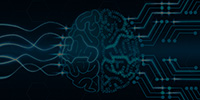 Information-Theoretic Principles in Cognitive Systems | 2022 NeurIPS Workshop
Information-Theoretic Principles in Cognitive Systems | 2022 NeurIPS Workshop
December 3, 2022 | New Orleans
Many cognitive and neural systems can be described in terms of compression and transmission of information given bounded resources. While information theory, as a principled mathematical framework for characterizing such systems, has been widely applied in neuroscience and machine learning, its role in understanding cognition has traditionally been contested. This traditional view has been changing in recent years, with growing evidence that information-theoretic optimality principles underlie a wide range of cognitive functions, including perception, working memory, language, and decision making. In parallel, there has also been a surge of contemporary information-theoretic approaches in machine learning, enabling large-scale neural-network implementation of information-theoretic models.
 Shared Visual Representations in Human & Machine Intelligence | 2022 NeurIPS Workshop
Shared Visual Representations in Human & Machine Intelligence | 2022 NeurIPS Workshop
December 2, 2022 | New Orleans
The goal of the 4th Shared Visual Representations in Human and Machine Intelligence (SVRHM) workshop is to disseminate relevant, parallel findings in the fields of computational neuroscience, psychology, and cognitive science that may inform modern machine learning methods.
In the past few years, machine learning methods—especially deep neural networks—have widely permeated the vision science, cognitive science, and neuroscience communities. As a result, scientific modeling in these fields has greatly benefited, producing a swath of potentially critical new insights into human learning and intelligence, which remains the gold standard for many tasks. However, the machine learning community has been largely unaware of these cross-disciplinary insights and analytical tools, which may help to solve many of the current problems that ML theorists and engineers face today (e.g., adversarial attacks, compression, continual learning, and self-supervised learning).
Thus we propose to invite leading cognitive scientists with strong computational backgrounds to disseminate their findings to the machine learning community with the hope of closing the loop by nourishing new ideas and creating cross-disciplinary collaborations.
 CNS2022: Marr's Level of Analysis 40 Years On
CNS2022: Marr's Level of Analysis 40 Years On
April 26, 2022 | San Francisco
We still do not understand the brain. The science of intelligence -- of how the brain computes intelligence — and the engineering of intelligence — of how to make intelligent machines -- are among the greatest problems of our times, possibly the most fundamental of all. There are of course different ways to “understand” an information processing system like a computer or perhaps the human brain. In addition to the original Marr-Poggio levels of hardware, algorithms and computations, one may consider alternative viewpoints based such as for instance those based on learning and evolution. Each of these ways of understanding can be independently relevant: for instance, understanding the problem of learning, and thus being able to develop and use machine learning tools, may lead to powerful systems without the need of understanding the algorithms that are actually learned. Taxonomies are somewhat arbitrary and sometimes useful. An important question is whether the taxonomy of the levels of understanding still provides — forty years later — a relevant research framework for solving the problem of artificial intelligence and, especially, the problem of human intelligence. The speakers in the symposium will address these and related issues in the quest to create a new science and engineering of intelligence.s
 Machine Learning Crash Course 2022
Machine Learning Crash Course 2022
June 27 to July 1, 2022 | Genova, Italy
Machine Learning is a key to develop intelligent systems and analyze data in science and engineering. Machine Learning engines enable intelligent technologies such as Siri, Kinect or Google self driving car, to name a few. At the same time, Machine Learning methods help deciphering the information in our DNA and make sense of the flood of information gathered on the web, forming the basis of a new “Science of Data”. This course provides an introduction to the fundamental methods at the core of modern Machine Learning. It covers theoretical foundations as well as essential algorithms. Classes on theoretical and algorithmic aspects are complemented by practical lab sessions.
This introductory course is suitable for undergraduate/graduate students, as well as professionals
 Computer Vision Crash Course 2022
Computer Vision Crash Course 2022
July 12 to July, 20 2022 | Genova, Italy
Visual perception, as a key element of Artificial Intelligence, allows us to build smart systems sensitive to surrounding environments, interactive robots, video-cameras with real time algorithms running on board. With similar algorithms, our smart-phones can log us in by recognizing our face, read text automatically, improve the quality of the photos we shoot. At the core of these applications are computer vision models, often boosted by machine learning algorithms.
This crash course is conceived as a complement to the “Deep Learning: Hands on introduction” course (henceforth DL) although it can be taken independently.
It covers the basic principles of computer vision and visual perception in artificial agents, including theoretical classes, application examples, hand-on activities. Within CVCC, we present elements of classical computer vision (introduction to image processing, feature detection, depth estimation, motion analysis). At the same time, by borrowing from DL, we also present deep learning approaches to computer vision problems such as image classification, detection and semantic segmentation.
 Deep Learning: a hands-on introduction 2022
Deep Learning: a hands-on introduction 2022
July 12 10 July 20, 2022 | Genova, Italy
Deep Learning (DL) is a branch of Machine Learning that has recently achieved astonishing results in a number of different domains. This course will provide a hands-on introduction to DL, starting from its foundations and discussing the various types of deep architectures and tools currently available. The theoretical classes will be coupled with hands-on activities in lab (in Python using Keras), which will constitute an integral part of the course, giving the possibility of practicing deep learning with examples from real-world applications, with particular focus on visual data. Besides well established approaches, the course will also highlight current trends, open problems and potential future lines of research.
Although the DL course can be taken independently, this year it will be held in synergy with the “Computer Vision Crash Course” (CVCC). Computer Vision is indeed one of the most classical and effective applications of DL in the real world. Contributions from the CVCC course will constitute a complementary deepening on basic principles of computer vision and visual perception in artificial agents, but also providing a guided tour through the use of deep learning for computer vision problems.
 Shared Visual Representations in Human & Machine Intelligence | 2021 NeurIPS Workshop
Shared Visual Representations in Human & Machine Intelligence | 2021 NeurIPS Workshop
December 13, 2021
The goal of the Shared Visual Representations in Human and Machine Intelligence (SVRHM) workshop is to disseminate relevant, parallel findings in the fields of computational neuroscience, psychology, and cognitive science that may inform modern machine learning methods.
In the past few years, machine learning methods—especially deep neural networks—have widely permeated the vision science, cognitive science, and neuroscience communities. As a result, scientific modeling in these fields has greatly benefited, producing a swath of potentially critical new insights into human learning and intelligence, which remains the gold standard for many tasks. However, the machine learning community has been largely unaware of these cross-disciplinary insights and analytical tools, which may help to solve many of the current problems that ML theorists and engineers face today (e.g., adversarial attacks, compression, continual learning, and self-supervised learning).
 Shared Visual Representations in Human & Machine Intelligence | 2020 NeurIPS Workshop
Shared Visual Representations in Human & Machine Intelligence | 2020 NeurIPS Workshop
December 11 - 12, 2020 | Virtual
The goal of the Shared Visual Representations in Human and Machine Intelligence (SVRHM) workshop is to disseminate relevant, parallel findings in the fields of computational neuroscience, psychology, and cognitive science that may inform modern machine learning methods.
In the past few years, machine learning methods—especially deep neural networks—have widely permeated the vision science, cognitive science, and neuroscience communities. As a result, scientific modeling in these fields has greatly benefited, producing a swath of potentially critical new insights into human learning and intelligence, which remains the gold standard for many tasks. However, the machine learning community has been largely unaware of these cross-disciplinary insights and analytical tools, which may help to solve many of the current problems that ML theorists and engineers face today (e.g., adversarial attacks, compression, continual learning, and self-supervised learning).
 REGML 2020 | Regularization Methods for Machine Learning
REGML 2020 | Regularization Methods for Machine Learning
June 29 - July 3, 2020 | Sestri Levante, Italy
RegML is a 20 hours advanced machine learning course including theory classes and practical laboratory sessions. The course covers foundations as well as recent advances in Machine Learning with emphasis on high dimensional data and a core set techniques, namely regularization methods. In many respects the course is a compressed version of the 9.520 course at MIT.
 MLCC 2020 @ simula | Machine Learning Crash Course
MLCC 2020 @ simula | Machine Learning Crash Course
May 25-29, 2020 | Oslo, Norway
Modern machine learning (ML) is a key to develop intelligent systems and analyze data in science and engineering. Today it provides impressive results in many fields, enabling intelligent technologies such as artificial voice assistants, and smart services such as optimized energy consumption. ML systems are nowadays considered as one of the largest share of growing market. While the amount of available tools and frameworks is becoming impressive, their effective application to real-world challenges requires an appropriate expertise. However, most of ML methods leverage the same building blocks and share basic concepts. Therefore, key to applying machine learning lays in understanding the basic formulations, relating them with prototypical study cases, reasoning on the situations when they are most appropriate. This 5-day course provides an introduction to the fundamental methods at the core of modern Machine Learning, covering theoretical foundations and essential algorithms. The program includes theoretical classes, lab sessions, and an industry workshop.
 Shared Visual Representations in Human and Machine Intelligence (SVRHM) - 2019 NeurIPS Workshop
Shared Visual Representations in Human and Machine Intelligence (SVRHM) - 2019 NeurIPS Workshop
December 13, 2019 | Vancouver, Canada
The goal of the Shared Visual Representations in Human and Machine Intelligence (SVRHM) workshop at NeurIPS 2019 is to discuss and disseminate relevant findings and parallels between the computational neuro/cognitive science and machine learning/artificial intelligence communities.
 Limitations of Deep Learning Workshop
Limitations of Deep Learning Workshop
June 25-27, 2019 | Sestri Levante, Italy
The Center for Brains, Minds and Machines and The Hebrew University of Jerusalem, with generous support from the Haar family, are organizing a workshop on advances in and limitations of deep learning on June 25-27, 2019 in Sestri Levante, Italy. For three days we will bring together computer scientists, cognitive scientists, and neuroscientists to share and discuss recent advances in deep learning, with particular attention to its current limitations and how they might be overcome to develop intelligent systems and models of the human mind.
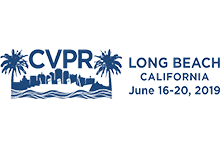 A workshop on language and vision at CVPR 2019
A workshop on language and vision at CVPR 2019
June 16-20, 2019 | Long Beach, CA
CVPR is the premier annual computer vision event comprising the main conference and several co-located workshops and short courses. With its high quality and low cost, it provides an exceptional value for students, academics and industry researchers.
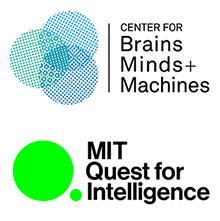 Symbols in the Brain Workshop
Symbols in the Brain Workshop
March 31, 2019 | MIT - Cambridge, MA
Prof. Tomaso Poggio, Director of the (CBMM), and Prof. Antonio Torralba, Director of MIT Quest for Intelligence, hosted an informal one-day workshop on the topic of Symbols in the Brain. The workshop organizers invited a diverse group of researchers – including, computer scientist with expertise in simulating artificial neural networks; computer science researchers with background on the theory of recursive functions and circuits; and cortical physiologists recording intracellularly and extracellularly from mammalian cortex – to discuss the still elusive questions: How do networks of neurons learn abstract concepts from the sensory world? How do networks of neurons manipulate the associate symbols?
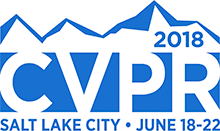 A workshop on language and vision at CVPR 2018
A workshop on language and vision at CVPR 2018
June 18, 2018 | Salt Lake City
CVPR is the premier annual computer vision event comprising the main conference and several co-located workshops and short courses. With its high quality and low cost, it provides an exceptional value for students, academics and industry researchers.
 Learning Disentangled Representations: from Perception to Control
Learning Disentangled Representations: from Perception to Control
December 9, 2017 | Long Beach Convention Center, CA
An important facet of human experience is our ability to break down what we observe and interact with, along characteristic lines. Visual scenes consist of separate objects, which may have different poses and identities within their category. In natural language, the syntax and semantics of a sentence can often be separated from one another. In planning and cognition plans can be broken down into immediate and long term goals. Inspired by this much research in deep representation learning has gone into finding disentangled factors of variation. However, this research often lacks a clear definition of what disentangling is or much relation to work in other branches of machine learning, neuroscience or cognitive science. In this workshop we intend to bring a wide swathe of scientists studying disentangled representations under one roof to try to come to a unified view of the problem of disentangling.
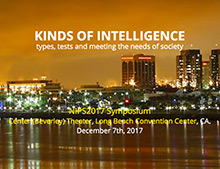 Kinds of Intelligence: types, tests and meeting the needs of society
Kinds of Intelligence: types, tests and meeting the needs of society
December 7, 2017 | Long Beach Convention Center, CA
This symposium explores this landscape across three main topics: a broader perspective of the possible kinds of intelligence beyond human intelligence, better measurements providing an improved understanding of research objectives and breakthroughs, and a more purposeful analysis of where progress should be made in this landscape in order to best benefit society.
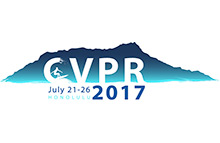 A workshop on language and vision at CVPR 2017
A workshop on language and vision at CVPR 2017
July 21, 2017 | Hawaii Convention Center
CVPR is the premier annual computer vision event comprising the main conference and several co-located workshops and short courses. With its high quality and low cost, it provides an exceptional value for students, academics and industry researchers.
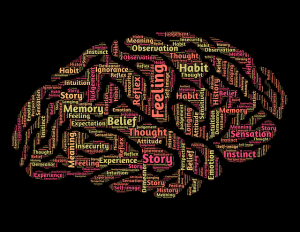 AAAI Symposium - Science of Intelligence: Computational Principles of Natural and Artificial Intelligence
AAAI Symposium - Science of Intelligence: Computational Principles of Natural and Artificial Intelligence
March 27 - 29, 2017 | Stanford University - Palo Alto, CA
The Science of Intelligence is a new emerging field dedicated to developing a computation-based understanding of intelligence -both natural and artificial- and to establishing an engineering practice based on that understanding. This symposium is designed to bring together experts in artificial intelligence, cognitive science, and computational neuroscience to share and discuss the advances and the challenges in the scientific study of natural and artificial intelligence.
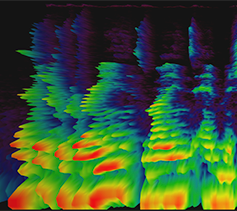 CBMM Workshop on Speech Representation, Perception and Recognition
CBMM Workshop on Speech Representation, Perception and Recognition
February 2 - 3, 2017 | MIT - Cambridge, MA
The focus of the workshop is on the computations and learning involved in human speech understanding and that are required for speech-enabled machines, following CBMM’s mission to understand intelligence in brains and replicate it in machines. The workshop will bring together experts in the fields of neuroscience, perception, development, machine learning, automatic speech recognition and speech synthesis.
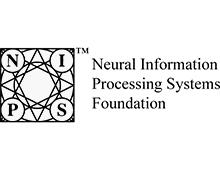 Intuitive Physics
Intuitive Physics
December 9, 2016 | Barcelona, Spain
This workshop will bring together researchers in machine learning, computer vision, robotics, computational neuroscience, and cognitive development to discuss artificial systems that capture or model intuitive physics by learning from footage of, or interactions with a real or simulated environment. There will be invited talks from world leaders in the fields, presentations and poster sessions based on contributed papers, and a panel discussion.
 Brains, Minds and Machines Workshop Sestri
Brains, Minds and Machines Workshop Sestri
June 20-22, 2016 | Sestri Levante, Italy
PreFor three days -- one day for each of the Brains, Minds, and Machines areas -- we will bring together computer scientists/roboticists, cognitive scientists, and neuroscientists to share and discuss advances in integrated, multimodal approaches to the study of human intelligence.
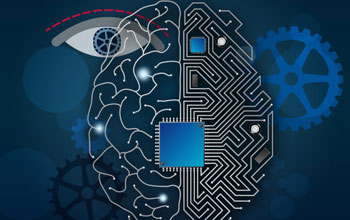 Deep Learning: Theory, Algorithms and Applications
Deep Learning: Theory, Algorithms and Applications
June 10-12, 2016 | McGovern Institute for Brain Research, MIT
The workshop aims at bringing together leading scientists in deep learning and related areas within machine learning, artificial intelligence, mathematics, statistics, and neuroscience. No formal submission is required and participation is by invitation only. Participants are invited to present their recently published work as well as work in progress, and to share their vision and perspectives for the field.
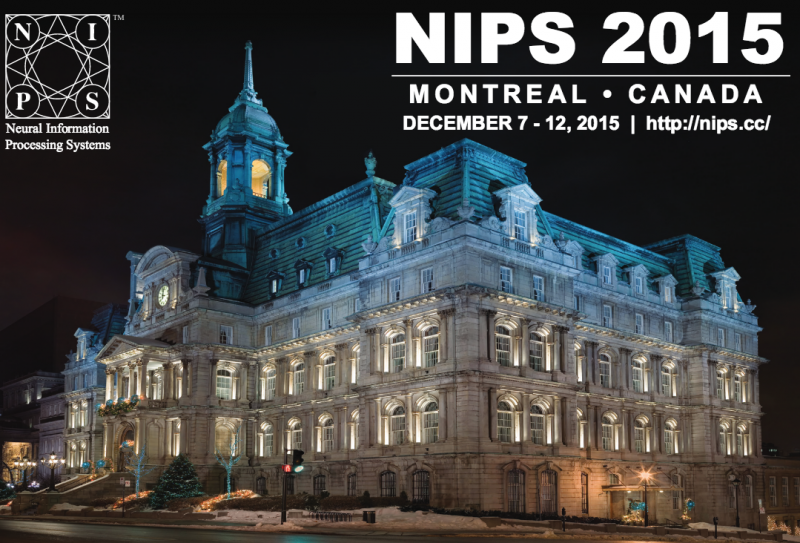 Neural Information Processing Systems (NIPS) 2015
Neural Information Processing Systems (NIPS) 2015
December 10, 2015 | Montréal, CANADA
Today's science, tomorrow's engineering: We will be discussing current results in the scientific understanding of intelligence and how these results enable new approaches to replicate intelligence in engineered systems.
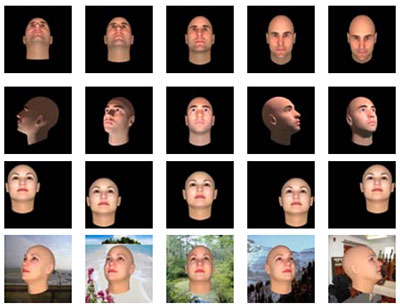 A Turing++ Question: Who is there?
A Turing++ Question: Who is there?
September 3rd - 5th, 2015 | McGovern Institute for Brain Research, MIT
The Center for Brains Minds and Machines (CBMM) is organizing a workshop on "Understanding Face Recognition: neuroscience, psychophysics and computation" from 3:30pm on September 3rd to 1pm on September 5th, 2015, at MIT in Cambridge. Attendance to workshop is by invitation only.
 CVPR 2015 Language and Vision Workshop
CVPR 2015 Language and Vision Workshop
Thursday, 11 June 2015 - Boston, Massachusetts
This workshop was co-organized by CBMM, Istituto Italiano di Tecnologia (IIT), MIT, Stanford University, UCLA, and the University of Surrey.
 Engineering and Reverse Engineering Reinforcement Learning
Engineering and Reverse Engineering Reinforcement Learning
July 18, 2014 | McGovern Institute for Brain Research, MIT
Psychologists and neuroscientists routinely borrow ideas from machine learning to understand and model reinforcement learning in humans and animals. Likewise, ideas from psychology and neuroscience filter into machine learning in a variety of ways. The goal of the workshop is to highlight some of the theoretical synergies that have arisen from this cross-pollination.
 Learning Data Representation: Hierarchies and Invariance
Learning Data Representation: Hierarchies and Invariance
November 22-24, 2013 | McGovern Institute for Brain Research, MIT
The goal of the meeting is to investigate advances and challenges in learning "good representations" from data, in particular representations that can reduce the complexity of later supervised learning stages. The meeting will gather experts in the field to discuss current and future challenges for the theory and applications of learning representations.
